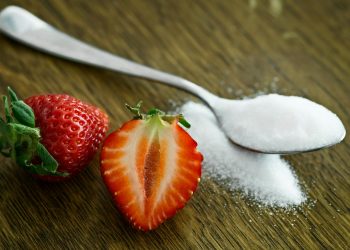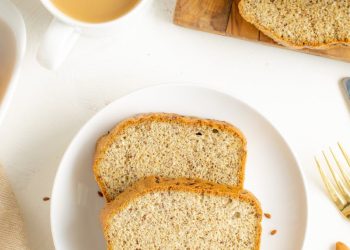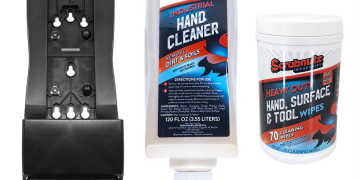Water is often an overlooked component of weight loss, yet it plays a crucial role in supporting metabolism, energy levels, and overall health. Staying hydrated is not just about quenching thirst; it can enhance your body’s ability to burn fat, regulate appetite, and optimize physical performance. But how much water do you really need to maximize these benefits? Let’s explore the science behind hydration and weight loss and practical ways to ensure you meet your body’s fluid needs.
Why Hydration Matters for Weight Loss
Proper hydration is essential for maintaining bodily functions, but it also has specific benefits for those trying to lose weight. Here’s how staying hydrated can support your goals:
1. Boosts Metabolism
Water is a key player in metabolic processes. Studies have shown that drinking water can temporarily boost your metabolism, increasing the number of calories your body burns at rest. This effect, known as water-induced thermogenesis, occurs as the body warms the ingested water to match its internal temperature.
2. Regulates Appetite
Sometimes, the body confuses thirst with hunger, leading to unnecessary calorie consumption. Drinking water before meals can help you distinguish between hunger and thirst, preventing overeating. Additionally, water takes up space in the stomach, contributing to a feeling of fullness and reducing overall food intake.
3. Enhances Physical Performance
Exercise is a key component of weight loss, and staying hydrated is critical for optimal performance. Dehydration can lead to fatigue, reduced endurance, and impaired strength, making workouts less effective. Proper hydration supports muscle function, joint lubrication, and temperature regulation, allowing you to get the most out of your exercise routine.
4. Supports Fat Breakdown
The process of breaking down stored fat for energy, known as lipolysis, requires water. Adequate hydration ensures that this process occurs efficiently, aiding in the mobilization and elimination of fat.
How Much Water Do You Need?
The amount of water each person needs can vary based on factors such as age, weight, activity level, and climate. However, general guidelines can help you determine a baseline:
- General Recommendations: The Institute of Medicine suggests a daily water intake of about 3.7 liters (125 ounces) for men and 2.7 liters (91 ounces) for women, including fluids from all beverages and foods.
- Activity Level: If you exercise regularly, you’ll need additional water to replace fluids lost through sweat. Aim to drink an extra 1-2 cups of water for every 30 minutes of physical activity.
- Body Weight: A common rule of thumb is to drink half your body weight in ounces of water each day. For example, a 160-pound individual should aim for 80 ounces of water daily.
- Climate: Hot and humid environments can increase water needs due to greater fluid loss through sweat.
Signs of Dehydration
Even mild dehydration can hinder weight loss efforts and overall well-being. Watch for the following signs to ensure you’re staying adequately hydrated:
- Dry mouth or throat
- Dark yellow urine
- Fatigue or low energy levels
- Headaches
- Dizziness or lightheadedness
- Reduced physical performance
If you experience any of these symptoms, increase your water intake and monitor how your body responds.
Tips for Staying Hydrated
Incorporating adequate hydration into your daily routine doesn’t have to be complicated. Here are practical strategies to ensure you’re meeting your fluid needs:
1. Start Your Day with Water
Begin your morning with a glass of water to replenish fluids lost overnight and kickstart your metabolism. Adding a slice of lemon or a splash of apple cider vinegar can enhance flavor and provide additional health benefits.
2. Carry a Reusable Water Bottle
Having a water bottle on hand makes it easier to sip throughout the day. Choose a bottle with volume markings to track your intake and set reminders to drink regularly.
3. Drink Before Meals
Consuming a glass of water 20-30 minutes before meals can help control appetite and prevent overeating. This simple habit also supports digestion by preparing your stomach for food.
4. Add Flavor Naturally
If plain water feels monotonous, infuse it with natural flavors like cucumber slices, mint leaves, or berries. These additions can make hydration more enjoyable without adding unnecessary calories.
5. Eat Water-Rich Foods
Fruits and vegetables with high water content contribute to your overall hydration. Options like watermelon, cucumbers, oranges, and strawberries are refreshing and hydrating choices that also provide essential vitamins and minerals.
6. Monitor Your Urine Color
A simple way to gauge hydration is by observing the color of your urine. Pale yellow indicates proper hydration, while darker shades suggest a need for more fluids.
7. Limit Dehydrating Beverages
Caffeinated and alcoholic drinks can contribute to dehydration if consumed in excess. Balance these with plenty of water to maintain optimal hydration levels.
Hydration Myths Debunked
Despite the importance of hydration, several misconceptions persist. Let’s address a few common myths:
- Myth: You Can Only Hydrate with Water: While water is the best choice, other beverages like herbal teas, milk, and even coffee in moderation can contribute to hydration.
- Myth: Thirst Is the Best Indicator of Hydration: Thirst is a late signal of dehydration. It’s better to drink regularly throughout the day rather than waiting until you feel thirsty.
- Myth: More Water Is Always Better: Overhydration, or hyponatremia, can occur when excessive water intake dilutes sodium levels in the blood. Stick to recommended guidelines and listen to your body.
Hydration and Weight Loss: A Long-Term Perspective
While drinking water alone won’t guarantee weight loss, it’s a vital component of a comprehensive approach. Combining proper hydration with balanced nutrition, regular exercise, and healthy lifestyle habits creates a strong foundation for achieving and maintaining your goals.
By understanding the role of hydration and making it a priority, you can enhance your physical performance, support metabolic processes, and enjoy a more energized and fulfilling weight loss journey.










